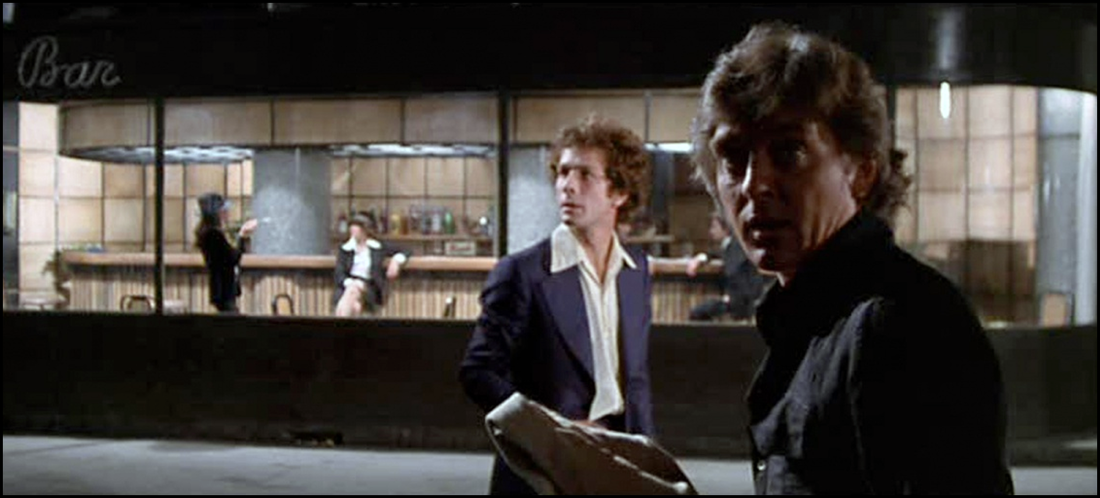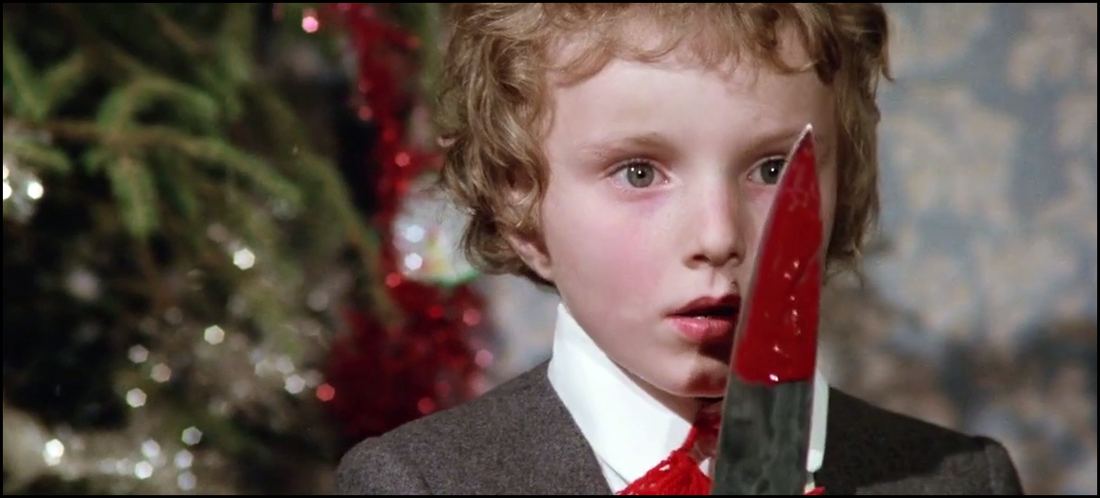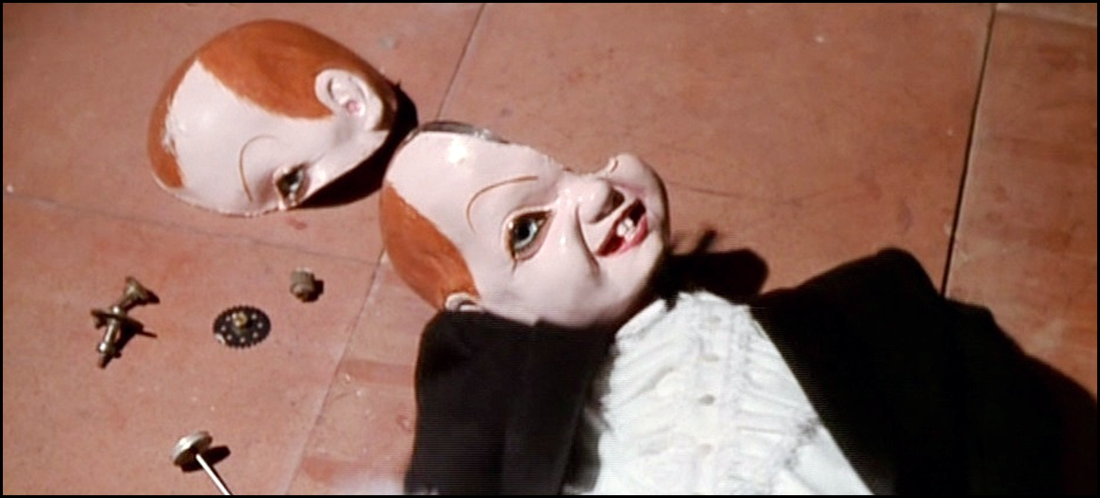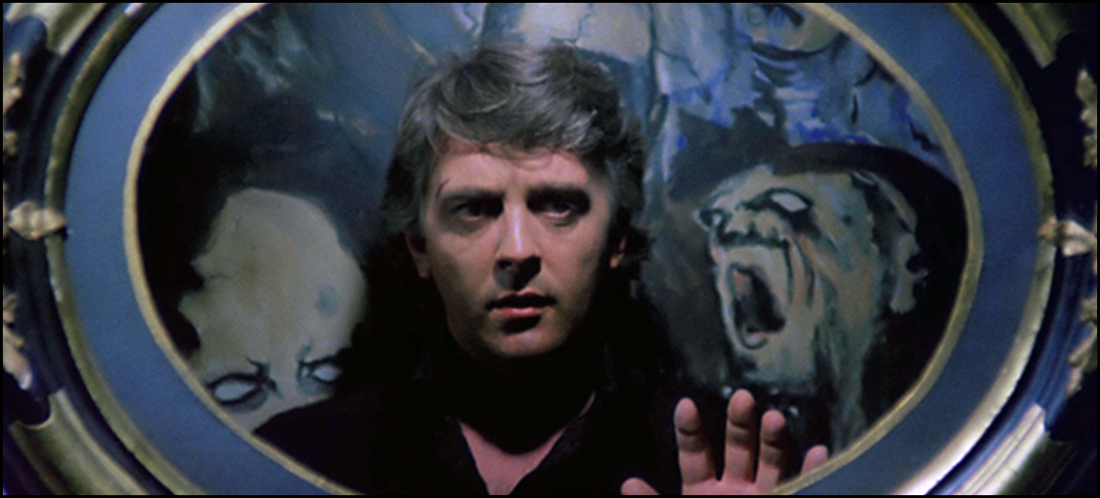If we’re speaking in cinematic terms, then the answer would lie with the skill of the craftsman (or craftswoman) behind the camera. While names like John Ford or Sergio Leone conjure up notions about epic Westerns that helped both define as well as shape the genre, the greatest purveyors of the film mystery is a bit harder to cite; and this is quite possibly owed to the fact that many who dabbled in the solving of a puzzle crossed over into realms of Drama, Comedy, and Horror. These storytellers typically mashed up different thematic categories in hopes of getting the best of both worlds to combine in ways others simply couldn’t (or didn't) achieve, and audiences rewarded their efforts over and over again at the box office.
Examples?
Well, Alfred Hitchcock definitely comes to mind. The England-born writer and director rather famously took his everyman characters and put them through some treacherous paces on the silver screen, so much so that his mysteries look less and less like puzzles and more like cinema thrill rides. Certainly, the Coen brothers – who’ve crafted such films as Blood Simple (1984), Miller’s Crossing (1990), and Fargo (1996) – have achieved great results with quixotic characters being thrust into dire straits, often times with an ample infusion of blood, menace, and comedy. Though it would appear that Brian De Palma steered his career away from the more traditional crime stories of his early career – films like Blow Out (1981) and The Untouchables (1987) – no one can deny the director’s signature ‘creeping camera’ style helped move the story along in ways other auteurs only dream about.
Where am I going with this, and what – pray tell – does this have to do with Science Fiction and/or Fantasy?
As I said, some directors defied the conventions of their generation and their industry, instead choosing to bring whatever elements they chose to a good story. One such master was Dario Argento. Instead of compartmentalizing films into particular niches, Argento tended to flavor whatever tapestry he spun with elements of darkness. He explored the natural and the supernatural. Sometimes bloody and sometimes macabre, his best and most personal films flirted with ideas not all that different from what the Brothers Grimm or even Edgar Allen Poe explored, stories about people thrust into a chilling nightmare they may or may not emerge from whole.
Definitely, Argento left his main character Marcus Daly (as played by David Hemmings) immersed in a pool of blood and perhaps questioning his own sanity in the process in the grand finish to Deep Red (1975) which I’ve recently had the good fortune of screening.
From the product packaging:
“One night, Marcus Daly, looking up from the street below, witnesses the brutal axe murder of a woman in her apartment. Racing to the scene, Marcus just manages to miss the perpetrator … or does he? As he takes on the role of amateur sleuth, Marcus finds himself ensnared in a bizarre web of murder and mystery where nothing is what it seems …”
The difficulty in reviewing a landmark presentation like Deep Red (aka The Hatchet Murders) – a singular flick often cited as one of filmdom’s best examples of pure giallo style – is that there’s an awful lot to unpack.
Visually, the film is dynamic as Argento peppers it with clever theatrics that provide commentary both about motion pictures in general as well as the expectations of those of us who watch them. Though some sequences feel longer than necessary (a popular criticism applied to Argento as well as the aforementioned Hitchcock and De Palma), I suspect every shot here was exactly what the auteur required in order to convey the magnitude of text and subtext. Even the music score at times seems to be coming at the material from yet another angle, offering up contrasting styles of jazz, technopop, and metal.
See what I mean?
As I teased in my article’s opening, there’s so much more to this than just a murder and its dastardly culprit, and I’ll have trouble squeezing even the most benign observations into the mix.
Because folks in these parts of the Information Superhighway do come expecting my discussion of Science Fiction and Fantasy, I’m going to focus on that particular element of Deep Red for the review. It may end up seeming inconsequential if not a bit trivial to some, but because Argento continued to make films flirting with the ideas of High Strangeness I think it’s entirely relevant. This focus, however, will allow me to dispense (at this time) with other subjects that might be a bit esoteric or academic, though as editor I do reserve the right to revisit the work at some later date if I feel so inclined.
In one of the film’s earliest segments, the audience is introduced to psychic Helga Ulmann (Macha Meril). The featured speaker at a conference involving the supernatural, Ulmann finds herself psychically assaulted by the film’s villain, presumably a participant in attendance. Even after the other presenters on stage come to her assistance, the woman is so overwhelmed by bloody impulses that she can no longer continue. Though the conference ends early, it becomes clear that the murderer will strike again … and it’s only natural that Ulmann become the next victim.
Why? She knows a crime has been committed. She's seen it, albeit in her mind's eye.
Wherein other dirctors treat such subject matter with kid gloves, Argento isn’t afraid to bring its possibility front-and-center. Ulmann’s unique psychic gifts are what define her as a character in this universe, and that makes her as a central target. If she survives after having read these murderous impulses, then the killer remains at risk. This telepathy serves as the catalyst to unlock a door once closed, and the audience is treated to even greater authenticity when it’s shown her continued journaling of these dark thoughts back in her hotel room before she meets her grim demise.
Though the wider discussion of telepathy essentially disappears from Deep Red at this point, I wondered if in some small way it continued to percolate in Argento’s mind as the rest of the story continued.
An otherwise uninvolved protagonist, Daly remains fixed on some deep-rooted need to uncover the murderer – yes, it’s clear that he’s at risk because of early involvement, but wouldn’t a normal person simply run away? Isn’t it a more natural human impulse to flee from impending danger … and yet Daly persists on growing more deeply involved at every turn? Could his fixation be something greater than a personal moral code … maybe even something supernatural? Is he in some way ‘linked’ to the evildoer beyond the obvious?
Again, I’m not suggesting this was the case as I’ve no way to know.
I’m simply pointing out that Argento’s catalogue of films suggest there’s something more to existence than what we see at face value, and I thought this worthy of pointing audiences in another direction to consider. Centrally, it's about the possibility that there's more to life than this. I find it refreshing when storytellers embrace some of what stretches beyond the conventional and works those ideas into their films because -- it's been my experience -- that's how those of us out in Blue Collar Existence see the world-at-large: it's a place sometimes too complicated to understand ... much like Argento's villain.
As for the special features? Again: wow. Arrow Video has quickly become the ‘go-to’ source for many of these older/vintage re-releases, especially those deserving of either greater study or widespread appreciation. The disc boasts a handful of video interviews with various stars (as well as director Argento) and production personnel that are surprisingly lengthy (longer than the all-too-typical five minutes bits). The chat with Argento and production manager Angelo Iacono were particular good; though the other interviews featured here are nice, I just didn’t see the reflections adding as much depth as did the director and manager’s. Also, there are a handful of galleries one can spend a fair amount of time with; again, they’re a great addition, but they’re not the kind of thing I’d ever go through another occasion. Lastly, there are two great commentaries, the better of which (in my opinion) is from Danish screenwriting Thomas Rostock. His presentation is filled with facts and figures – though occasionally he spends a bit too much time breaking down individual sequence compositions – but it’s all delivered with patience and poise. The other commentary – this one by author Troy Howarth and producer/cinematographer Nathaniel Thompson – I found occasionally frustrating if not downright puzzling; as the two men clearly know their stuff about film in general (as well as this one in particular), they’re often times speaking so fast to get out their respective thoughts that I found it hard to hear what they were actually saying. (!!!) I’ve experienced this before on audio commentaries – usually the ones by film historians can be overblown with content – and someone really needs to work with these behind-the-camera folks to temper either their nerves or their presentation style. Speaking inaudibly does no one any favors; as much as I enjoyed their dialogue, I could only put up with it for about 70 minutes or a 120+ minute endeavor. They were just that exhausting.
Highly recommended.
Deep Red is the kind of film I’d imagine film students are watching and writing papers on. Indeed, I would have – back in my day, that is – though I grew up largely unaware of it. Our local video store in my hometown really only had the bloodiest entries in the Argento library, and I don’t recall it being on the shelves at the time. Still, I’m thrilled to have discovered it today as I think it definitely demonstrates that great storytelling isn’t confined to any single country much less any singular storyteller. Yes, Argento is a master, and this film in particular is worthy of your attention.
In the interests of fairness, I’m pleased to disclose that the fine folks at Arrow Video provided me with a complimentary Blu-ray disc of Deep Red (1975) by request for the expressed purposes of completing this review; and their contribution to me in no way, shape, or form influenced my opinion of it.
-- EZ





 RSS Feed
RSS Feed